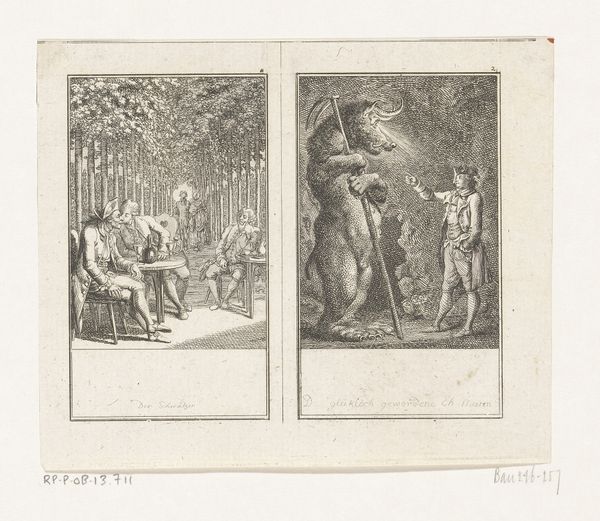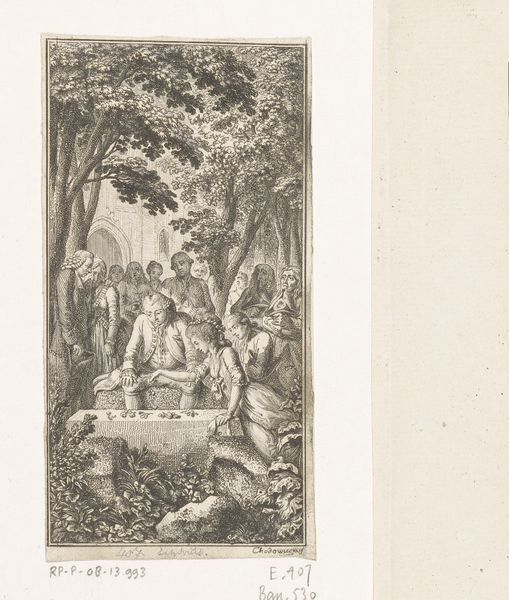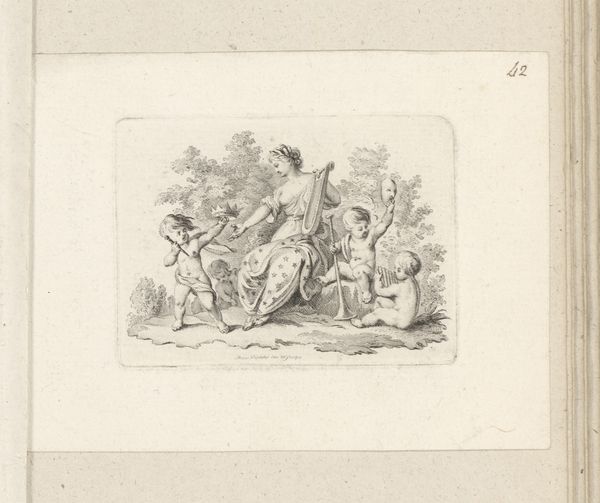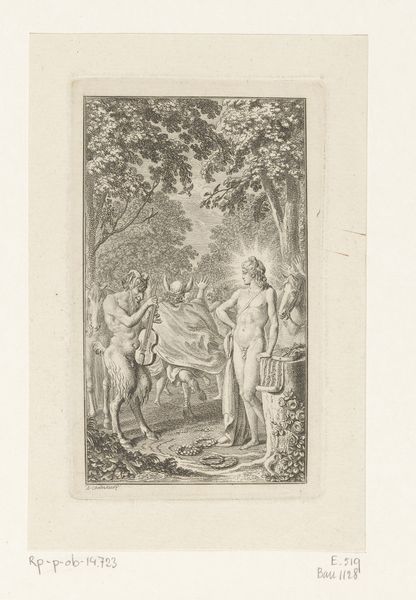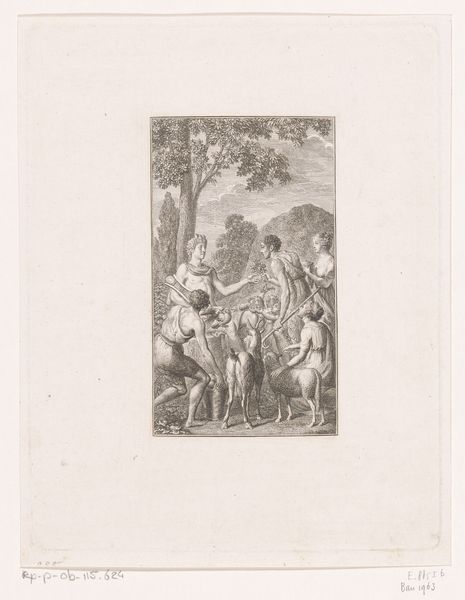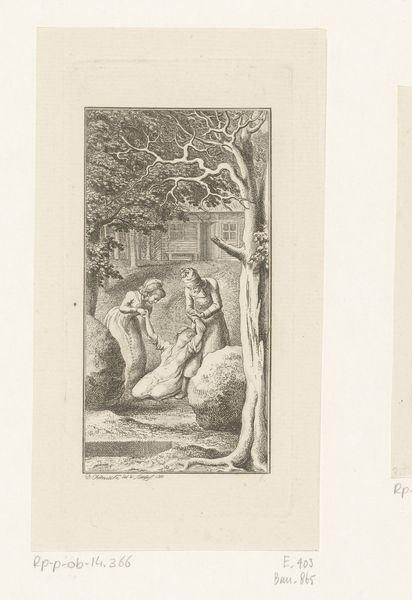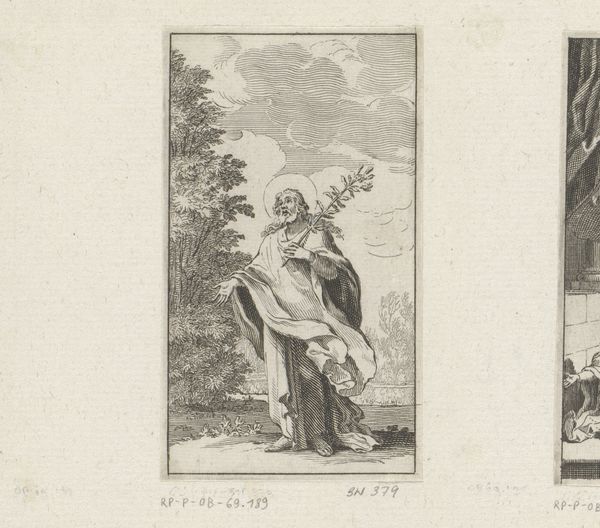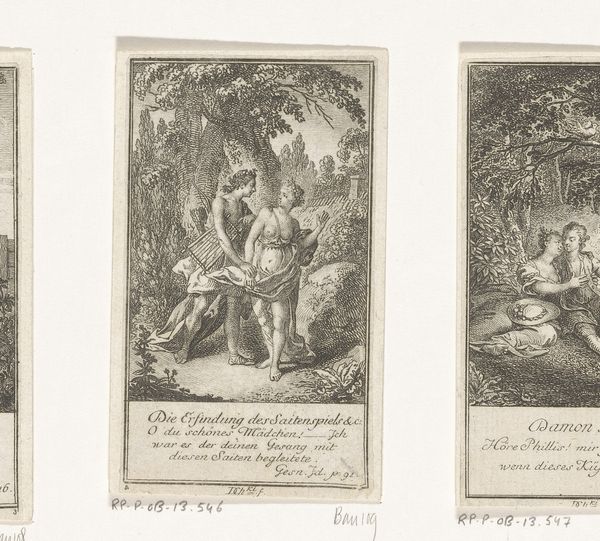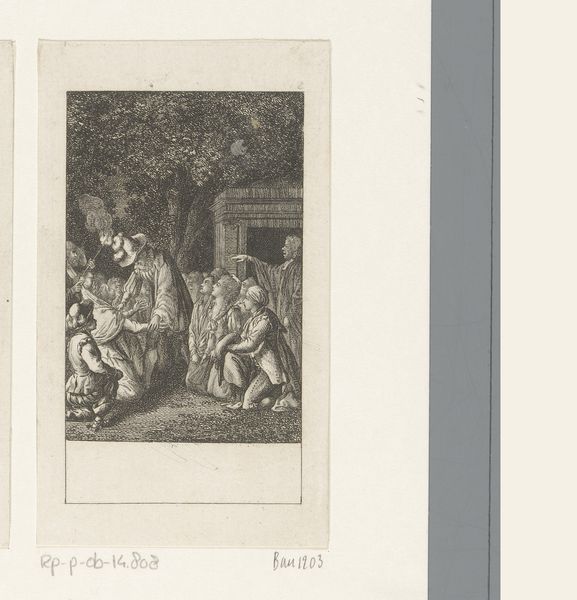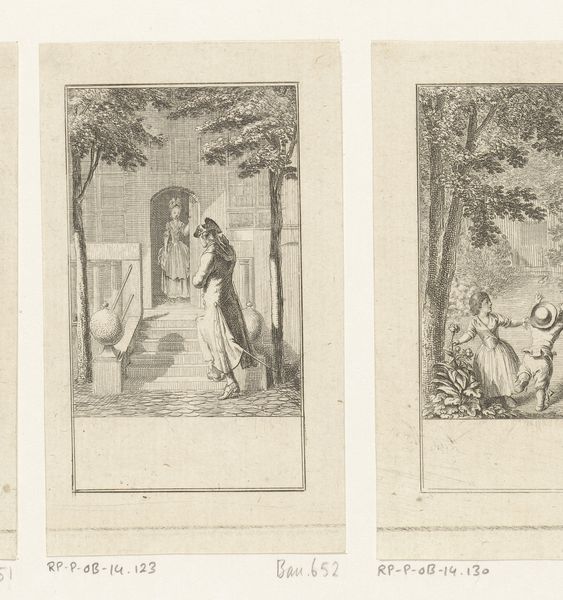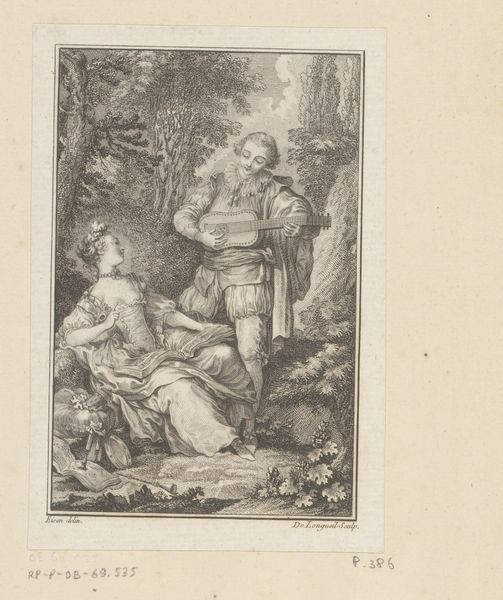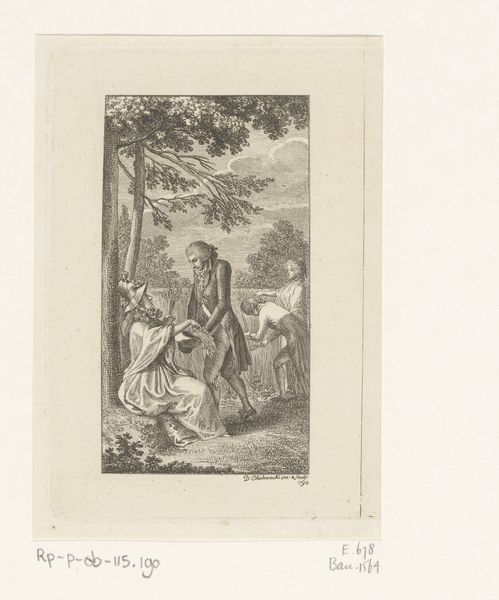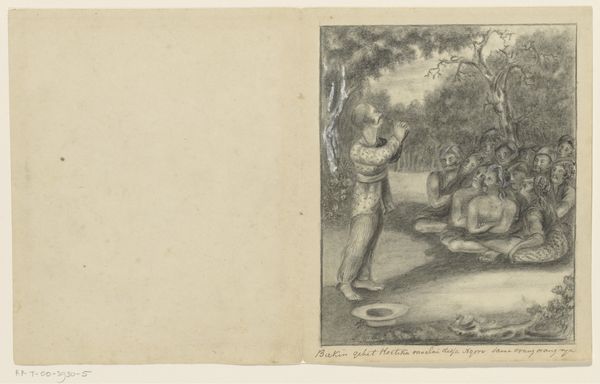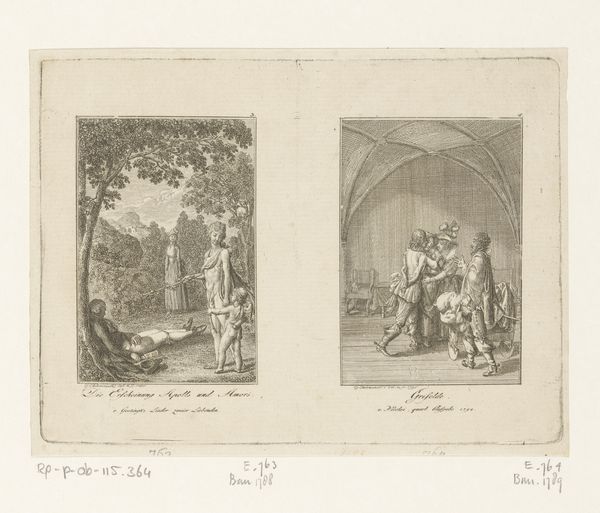
print, engraving
#
neoclacissism
#
aged paper
#
allegory
# print
#
old engraving style
#
landscape
#
figuration
#
history-painting
#
engraving
Dimensions: height 103 mm, width 77 mm
Copyright: Rijks Museum: Open Domain
This small engraving, Flora geëerd door de vier seizoenen, was made by Daniel Nikolaus Chodowiecki in 1777. Chodowiecki was a master of the printmaking technique, etching, which involves using acid to bite lines into a metal plate, allowing for highly detailed and reproducible images. The fine lines of the etching beautifully render the scene of Flora, the Roman goddess of flowers and spring, being honored by the four seasons. Look closely at the image. Notice how the varying densities of lines create a sense of depth and texture, from the delicate foliage to the smooth skin of the figures. The process of etching allowed Chodowiecki to produce multiple copies of this artwork. Prints like this were part of a burgeoning industry, where images could be disseminated widely, contributing to the spread of knowledge, ideas, and artistic styles during the Enlightenment. Consider the labor involved in creating such a detailed image, and the social context in which it was produced and consumed. Understanding the materials, the making, and the context is key to understanding the full meaning of the artwork.
Comments
No comments
Be the first to comment and join the conversation on the ultimate creative platform.
